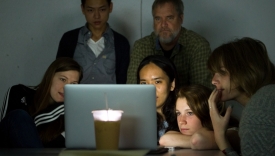Political Science 215 - Democratic Backsliding
TU/TH | 10:00 AM - 11:20 AM
According to many scholars, the world is experiencing a democratic recession. Since the 2000s, many established democracies are undergoing erosion in their democratic institutions, even transitioning to autocracies. Also, fewer autocracies and semi-authoritarian regimes are transitioning to democracy. During the Cold War, most threats to existing democracies came from the military or non-state actors, such as insurgents or extremist movements. In this era of democratic backsliding, most serious threats to democratic rule stem from the very winners of democracy—incumbent presidents who came to office by winning elections. This course tries to understand the extent of this democratic erosion worldwide—its dimensions, causes, and possible ways to address it. Readings will draw from theoretical, comparative, historical, and case-based works. Students will also work on independent research projects and class presentations.
Limited to 20 students. Spring 2024. Professor Corrales.
How to handle overenrollment: Sophomores intending to major in Political Science will have priority. Students who took Democratic Backsliding as a first year seminar are not eligible.
Students who enroll in this course will likely encounter and be expected to engage in the following intellectual skills, modes of learning, and assessment: Emphasis written work, discussion, readings, independent research, oral presentations, group work.



